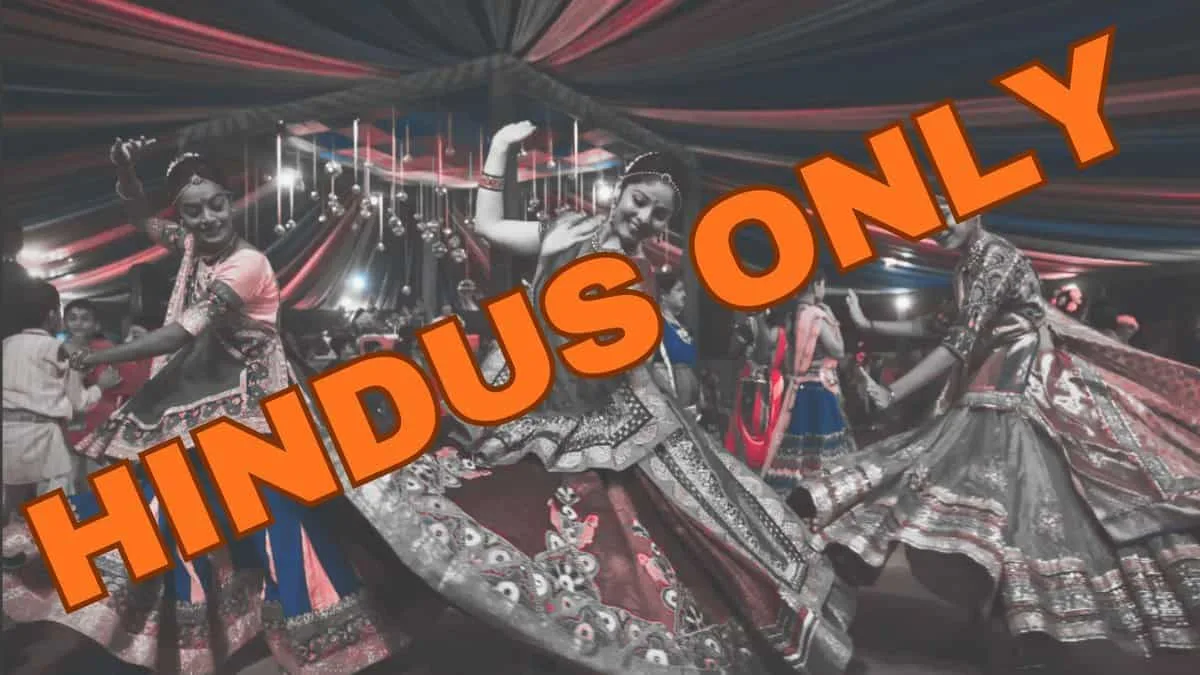Garba, a traditional Gujarati dance performed during the Hindu festival of Navratri, has historically seen participation from people of all communities. In recent years, however, several incidents have emerged where Muslims were deliberately targeted and barred from the events following complaints by Hindutva groups.
The most recent viral video comes from Madhya Pradesh’s Sagar district. Aftaab Hussain, a Kashmiri student of Dr Harisingh Gour University, was assaulted by members of Bajrang Dal, Vishva Hindu Parishad, and Hindu Jagran Manch for attending a garba event.
Srinagar MP Aga Syed Ruhullah Mehdi condemned the attack, strongly criticizing the right-wing groups responsible. “If Kashmiri students can’t even participate in your events, what does sabka saath mein? You’ve exposed yourselves as the most anti-national, communal force in this country,” he wrote on an X post.
The J&K Students Association also stated the attack, demanding “urgent intervention” of the Deputy General of Police, Madhya Pradesh.
“It is deeply disturbing that, under the pretext of this (Navratri) holy occasion, fringe groups aligned with RSS are weaponising religion to harass, vilify, and demonise a Kashmiri Muslim student, giving communal colour to what is essentially a cultural and spiritual celebration,” the statement read.
In Hyderabad, a 25-year-old engineering student was assaulted by Hindutva workers for entering a dandiya event, who later escaped the mob with the help of a cop.
Another viral video of two Muslim women in Kota, Rajasthan, were denied entry to a Garba event despite owning valid passes for being “non-Hindus”. Even though they were refunded, the women expressed feeling insulted, as they felt sidelined due to their religion.
In Chhattisgarh, a Muslim young man was made to bow down before a deity and forced to chant ‘Jai Shri Ram’ by a Hindutva group after he was caught dancing in a garba event.
Members of the Antarrashtriya Hindu Parishad (AHP) and Rashtriya Bajrang Dal during a protest in Jabalpur, Madhya Pradesh, submitted a memorandum calling for a ban on Muslim participation in Navratri Garba events before the celebrations began. Citing the conspiracy theory of “love jihad,” the organisations demanded Aadhaar verification at Garba venues, aiming to restrict Muslim participation in the events.
As speculation around the case spread online, similar incidents continue to be reported across the country. According to experts, exclusion based on religious identity is currently being used as a form of segregation during festivals.
A human rights movement, Citizens for Justice and Peace (CJP), acknowledged that Hindutva organisations are setting alarming precedents while changing public perception.
“By focusing attention on who gets to celebrate, the narrative risks shifting public conversation away from everyday concerns like water-logging during the monsoon, crumbling roads, and the steady relocation of industries, issues that directly affect people’s lives,” CJP observed.







